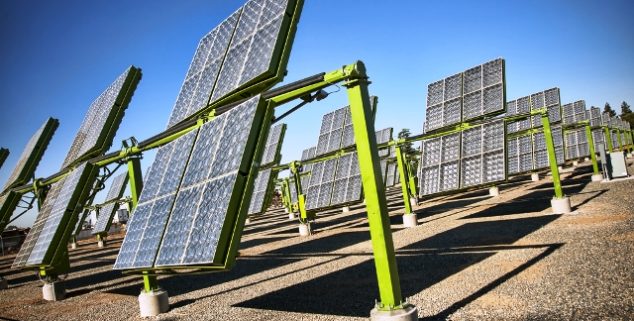Opinion
Looking ahead: Solar energy for all
 Solar PV panels used to power agricultural equipment in the Central Valley. (Photo: Shippee, via Shutterstock)
Solar PV panels used to power agricultural equipment in the Central Valley. (Photo: Shippee, via Shutterstock)For our organizations, that means advancing policy solutions serving Californians who bear the biggest burden of energy inequity and fossil fuel pollution, and who also face economic and physical barriers to installing solar on their own roofs – those who rent, have low credit scores, and live in deep poverty.
Clean, affordable solar power delivers health and economic benefits across the country, and California has the opportunity to ensure that all of its residents can share the prosperity of a new energy economy that respects people and planet.
The Renewable Energy for All Bill is one opportunity that unanimously passed through the Senate Energy and Utilities Committee this week. With continued support in California’s legislature, Senator Connie Leyva’s Senate Bill 366 will unlock access to clean energy for disadvantaged communities through the state’s existing shared solar program.
Shared solar programs allow residents to save money on their energy bills by subscribing together to an offsite solar project. This option is especially important for expanding solar access to California’s 4.1 million low-income families, more than two-thirds of whom rent their homes or otherwise face financial and other barriers to installing solar on their own roofs.
The Green Tariff Solar Renewables (GTSR) is one of California’s shared solar programs. While the program seeks to promote solar development and environmental benefits, there is an additional fee for subscribers, which puts those benefits out of reach for low-income residents. That extra cost is a financial burden to customers who can least afford – but would most benefit – from renewable energy access. SB 366 aims to improve the GTSR program by ensuring that it financially benefits low-income customers and has a strong environmental justice focus.
SB 366 would make a difference in the lives of people on the frontlines of poverty, pollution, and racism. These are people like Californian Lipo Chanthansasak, who would directly benefit from reduced utility bills through shared solar. Lipo is a community leader in the Asian Pacific Environmental Network (APEN), and also a Richmond resident, where Chevron and industrial polluters like it are causing cancer and other severe health conditions in the community.
In a story that resonates with thousands of Americans nationwide, Lipo’s family couldn’t afford the electric bills that arrived each month for nearly a year. When PG&E sent Lipo a two-thousand-dollar bill and threatened to shut off the electricity at the end of the year, it was only thanks to donations and community support that Lipo’s family avoided losing power during the coldest winter months.
SB 366 will ensure that all Californians benefit from the expansion of renewable energy in our state. In order to reach the renewable energy and energy efficiency goals of SB 350, California’s law to drastically reduce greenhouse gas emissions and improve our air quality by 2030, solutions must include communities on the frontlines of the climate and economic crisis.
APEN, California Environmental Justice Alliance, and other environmental justice advocates partnered with the California Energy Commission to develop the SB 350 Low-Income Barriers Study, which details how the state can make renewable energy and energy efficiency programs more accessible to low-income and environmental justice communities. The Renewable Energy for All bill is a promising start.
As people across the world recognize the importance our living environment, California must advance the imperative to address the immediate environmental, health, and economic needs of frontline communities. We must all be able to make a living on a living planet!
—
Ed’s Note: Susannah Churchill is California director for Vote Solar, a nonprofit advocacy organization working to fight climate change and foster economic opportunity. Miya Yoshitani is executive director of Asian Pacific Environmental Network, which advocates for environmental justice for low-income Asian American immigrant and refugee communities.
Want to see more stories like this? Sign up for The Roundup, the free daily newsletter about California politics from the editors of Capitol Weekly. Stay up to date on the news you need to know.
Sign up below, then look for a confirmation email in your inbox.

Leave a Reply